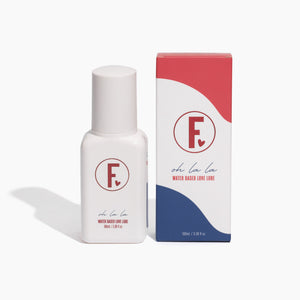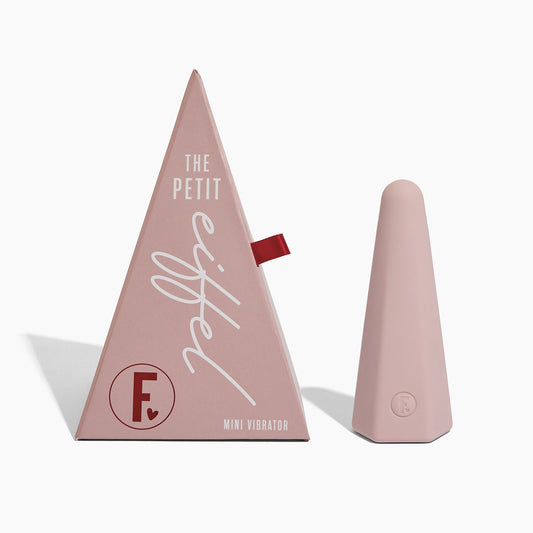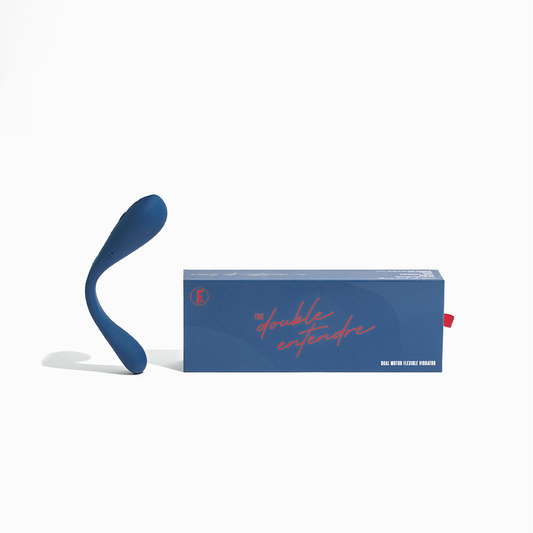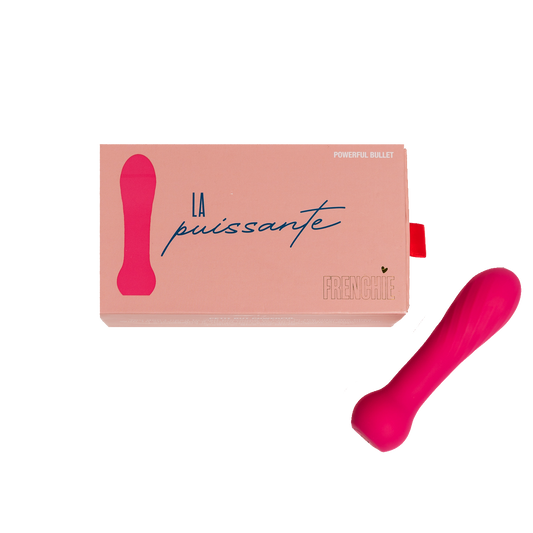Changes and Differences in Sex Drives
There are many factors that affect our sex drive and it's totally normal for our sex drive to change. But understanding your body and your sexual desire may help you find that spark again.

Our date ended with passionate and lustful sex all night. We woke very early in the morning as I had a flight to catch. We shared our first and last shower together. Foreheads pressed against one another as we inhaled and exhaled at the same time, holding one another. In that moment, I wish I could have spent just one more night with him. I found our sexual connection more affectionate, hot, and present compared to many of my long-term partners.
I can’t quite capture this encounter in words for you. What I can confirm is my desire to have sex was strong. So strong, that almost six months on I am still reminiscing.
Stress and sexual desire. Why does it matter?
Stress plays a fundamental role in our capacity to experience sexual desire. Our desire to feel sexual and be sexual may diminish in the face of responsibilities, demands and deadlines. Stress and sexual desire between two people is dyadic and a dynamic experience. Meaning, there are twice as many variables impacting our capacity to engage in sex when two people are involved. When stress is perceived, our capacity to respond to sex may be inhibited. Cognitive distractions also happen to be at an all-time high when experiencing stress which may contribute to the lack of time spent and dedicated to both parties enjoying it. Research shows the correlation between increased stress and lowered sexual desire tends to be a gendered experience. This means many women and vulva owners tend to desire sex less the more stress is present.
It may be a nice surprise to you that research has also found stress may increase desire to masturbate. This may be because masturbation solely focuses on our own needs and in a sense may be experienced as self-soothing, whereas partnered sex requires additional thought and energy expenditure as we should consider our partner’s needs. When life is so demanding and requiring so much thought, sometimes we simply do not have cognitive capacity to prioritise another’s needs.
Do we experience desire differently?
A significant reason our capacity to engage in sex is due to how we experience desire. The way in which we are motivated to desire sex can be very different for person A and person B. We are all motivated differently to engage in sexual behaviours. Sexual desire is experienced either spontaneously or as responsive. Understanding the difference between spontaneous and responsive desire may shed light on your own way of desiring sex in comparison to your partner/s style.
Many sex researchers have offered different models to explain how we experience sexual desire. Some have offered models that emphasise desire before arousal, while others suggest desire simultaneously occurs alongside arousal. More recently, the explanation of spontaneous and responsive desire may offer us a greater understanding of why we don’t want to get it on. Simply put, spontaneous desire is essentially a random urge to chase the pleasure we may have been conditioned to expect from sex. Much like craving a slice of chocolate cake, the urge for sex strikes at random. Responsive desire is when we become aroused, or at least, interested in some form of stimuli outside of ourselves. When that stimulus has caught our interest, we then respond and wish to engage.
Learning desire as a woman and vulva-owner
Many women and vulva-owners fall into the responsive desire category. Unfortunately, women and vulva-owners have grown up with a limited understanding of how we become aroused. Research has highlighted arousal is more than having a WAP but requires connection and safety to feel desire. As vulva-owners it is crucial we recognise our capacity to respond sexually is not stable and consistent due to our menstrual cycles and changes in hormones. Learning to accept low desire is normal and healthy due to our ever-changing hormones.
My own reflections
I’d like to acknowledge that only a few months before my holiday romance, my sexual desire was non-existent. My physical body was experiencing stress as a result of chronic health problems. These health problems caused me to take time off work which resulted in financial stress. In addition to this, I was juggling university. These health problems and responsibilities left little time or energy to want to engage in sex with my then partner, which in turn, caused more stress in the relationship. It was all a bit of a stress cycle at this point.
Fast forward to my holiday. I had simply dedicated one week to myself. I went to bed early and woke up with the sun. On the daily I swam, laid in the sun, danced, enjoyed yoga, ate well, treated myself to massages, did breathwork, laughed and cried. I slowed down and did all I could to reduce or eliminate stress. Then, when I was with my lover, I stayed slow. I continued to do what felt good. It was important I did not perform for him. That I was there to authentically receive pleasure in my body when it presented.
I know this is easy when you’re on a holiday. I understand this is temporary. But what it did act as was a reset and a reminder.
What did we learn?
- Assess the real and perceived stressors in your life. What can you change?
- Create time for yourself to embody a sense of calm and to take care of yourself.
- Establish simple yet effective routines such as not rushing home from work, a clean home, nutritious food, and a good sleep hygiene.
- If you are a vulva-owner, you likely experience desire responsively. Play around and notice what captures your interest sexually.
- Communicate your realisations to your sexual partner/s. They are not mind readers. It is important to share our learnings.
- Desire looks different for all of us. You do not need a WAP to know you want to participate in sex.
- It is totally normal to have ebbs and flows within your sexual desire.
References
Lassman, J. H. (2017). A comparison of spontaneous and responsive models of sexual desire in women who meet screened criteria for female sexual interest/arousal disorder. ProQuest Dissertations Publishing.
Jabs, F., & Brotto, L. A. (2018). Identifying the disruptions in the sexual response cycles of women with Sexual Interest/Arousal Disorder. The Canadian Journal of Human Sexuality, 27(2), 123-132.
Gilies, K. R., & McCabe, M. P. (2009). Original research – women’s sexual health: Conceptualising women’s sexual function: Linear vs circular models of sexual response. Journal of Sexual Medicine, 6(10), 2761-2771.
Amy Louise is an Australia Sexologist providing consultancy services, sexual wellness coaching and freelance writing with the objective to increase bodily autonomy, pleasure and fun when it comes to sexuality and sexual health.





